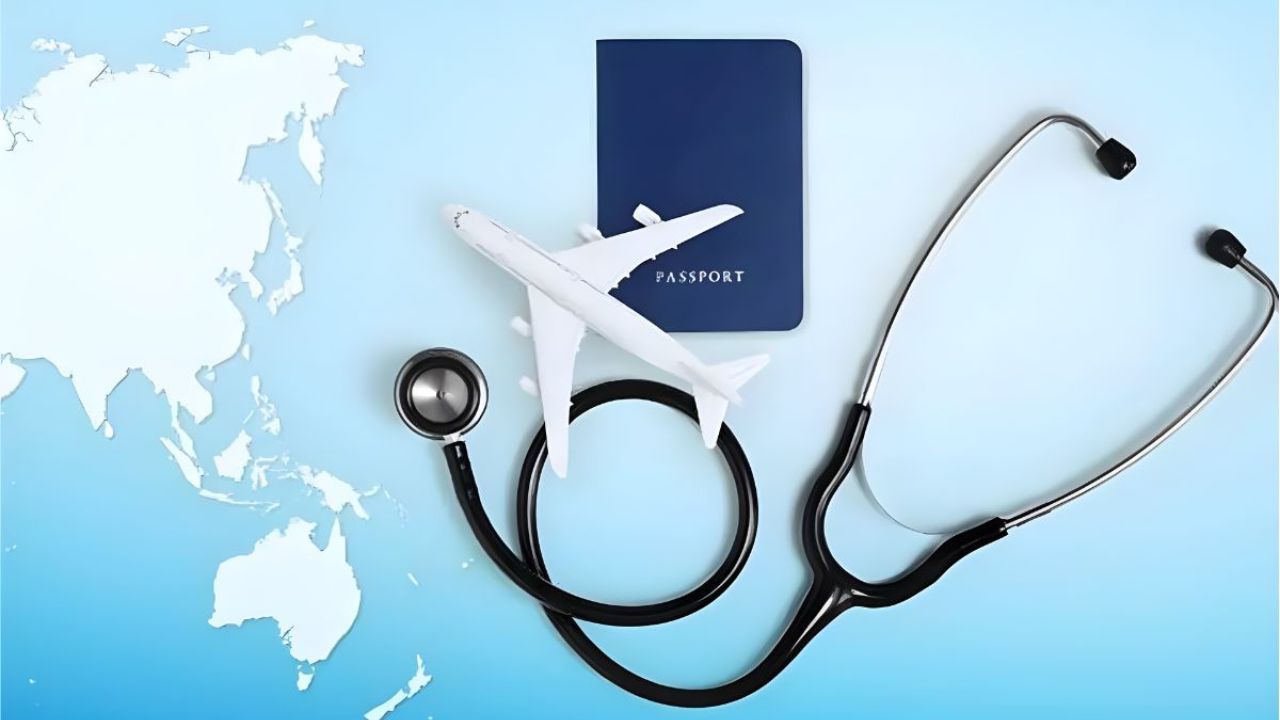Travel insurance provides financial protection and assistance for travelers facing unforeseen events. It covers expenses like travel delays, cancellations, medical emergencies, and lost luggage. Purchasing a policy offers peace of mind and ensures travelers are prepared for unexpected travel circumstances.
What Is Travel Insurance?
Travel insurance is a financial product designed to protect travelers against unforeseen events before or during their trip. It typically covers expenses related to trip cancellations, medical emergencies, lost luggage, and other mishaps. Policies vary, offering different levels of coverage and options. Travelers purchase insurance to mitigate financial risks and provide peace of mind while traveling domestically or internationally.
What travel insurance covers
Travel insurance covers a range of potential issues travelers may face, including trip cancellations or interruptions, medical emergencies, emergency evacuations, lost or delayed luggage, and travel delays. Some policies also cover rental car damage, missed connections, and personal liability.
Coverage levels and specifics vary by policy, with options for additional protection like adventure sports or pre-existing medical conditions. Travel insurance provides financial reimbursement and assistance, enhancing peace of mind during trips.
How much does travel insurance cost?
Travel insurance costs vary based on factors like trip length, destination, age of the travelers, and coverage level. Typically, premiums range from 4% to 10% of the total trip cost. For example, a $5,000 trip might incur insurance costs between $200 and $500. Additional coverage, such as for high-risk activities or pre-existing medical conditions, can increase the price. Comparing policies and understanding specific needs helps travelers find the best value for their money.
Types of travel insurance
Types of travel insurance include trip cancellation/interruption, medical and emergency evacuation, baggage loss/delay, and travel delay coverage. Specialized options cover rental car damage, adventure sports, and pre-existing medical conditions. Annual policies offer year-round protection for frequent travelers. Each type addresses different travel risks, allowing travelers to choose coverage that best suits their needs and travel plans.
Travel medical insurance
Travel medical insurance covers medical expenses incurred while traveling abroad. It includes emergency medical treatment, hospital stays, doctor visits, and sometimes dental care. Policies often provide coverage for emergency medical evacuations and repatriation.
This insurance is essential for international travelers, as regular health insurance typically doesn’t cover medical costs outside one’s home country. It ensures access to necessary medical services and mitigates financial risks associated with unexpected health issues during travel.
International travel insurance
International travel insurance provides coverage for travelers outside their home country. It protects trip cancellations, medical emergencies, emergency evacuations, lost or delayed baggage, and travel delays.
Some policies also offer coverage for rental car damage, adventure sports, and pre-existing medical conditions. This insurance ensures financial and logistical support in case of unexpected events, enhancing safety and peace of mind during international trips.
Trip cancellation, interruption, and delay
Trip cancellation, interruption, and delay insurance provide financial protection for various travel disruptions. Trip cancellation coverage reimburses non-refundable expenses if a trip is canceled due to covered reasons like illness, injury, or severe weather.
Trip interruption insurance covers the cost of unused portions of the trip and additional expenses if a trip is cut short for similar reasons. Trip delay insurance reimburses costs incurred due to prolonged delays, such as accommodation, meals, and transportation.
These coverages help travelers manage the financial impact of unexpected changes, ensuring they aren’t left bearing significant out-of-pocket expenses.
How Travel Insurance Works
Travel insurance provides financial reimbursement and assistance for covered travel-related incidents. Travelers purchase a policy before their trip, selecting coverage options. The insured files a claim with supporting documentation if a covered event occurs. The insurer reviews the claim and reimburses eligible expenses, such as medical costs, trip cancellations, or lost luggage, helping travelers manage unforeseen travel disruptions.
Primary and Secondary Coverage
Primary coverage in travel insurance pays claims directly without requiring you first to use any other insurance. It provides immediate assistance and reimbursement. Conversely, secondary coverage pays after any other applicable insurance (like health or homeowners) has been used.
It covers the remaining costs not paid by the primary insurance. Primary coverage offers quicker claims resolution, while secondary coverage is typically less expensive, supplementing existing insurance policies.
Coverage Requirements
Coverage requirements for travel insurance vary by provider but typically include:
- Purchasing the policy before any incidents occur.
- Being a resident of the issuing country.
- Sometimes, meeting health criteria.
Policies may require details like trip dates, destinations, and costs. Pre-existing medical condition coverage often necessitates additional documentation or a medical review. Meeting these requirements ensures claim eligibility, providing financial protection and assistance for travel-related incidents.
Policy Coverage Limits
Coverage requirements for travel insurance vary by provider but typically include:
- Purchasing the policy before any incidents occur.
- Being a resident of the issuing country.
- Sometimes, meeting health criteria.
Policies may require details like trip dates, destinations, and costs. Pre-existing medical condition coverage often necessitates additional documentation or a medical review. Meeting these requirements ensures claim eligibility, providing financial protection and assistance for travel-related incidents.
Exclusions
Exclusions in travel insurance are specific conditions or events not covered by the policy. Common exclusions include:
- Pre-existing medical conditions.
- High-risk activities (like extreme sports).
- Losses due to intoxication or drug use.
- Incidents resulting from illegal acts.
Coverage for acts of war, civil unrest, and pandemics may also be excluded or limited. Understanding policy exclusions is crucial to avoid unexpected out-of-pocket expenses and ensure the selected insurance meets your travel needs.
Comprehensive Travel Insurance
Comprehensive travel insurance offers extensive coverage for various travel-related risks. It typically includes benefits like trip cancellation/interruption, emergency medical expenses, baggage loss/delay, and travel delay coverage.
Additional features may include coverage for rental car damage, adventure sports, and pre-existing medical conditions. Comprehensive policies provide comprehensive protection against unforeseen events, offering peace of mind to travelers during domestic and international trips.
Trip Cancellation or Interruption Coverage
Trip cancellation or interruption coverage protects travelers financially if they need to cancel or cut short their trip due to covered reasons such as illness, injury, or severe weather. It reimburses non-refundable trip expenses, including flights, accommodations, and tour packages.
Additionally, it covers additional expenses incurred due to trip delays or interruptions, ensuring travelers can handle the financial burden of unforeseen circumstances that disrupt their travel plans. This coverage provides peace of mind and financial security, especially for expensive or long-planned trips.
Damage and Baggage Losses Coverage
Damage and baggage loss coverage in travel insurance protects travelers’ belongings during their journey. It reimburses the cost of repairing or replacing luggage and personal items in case of theft, damage, or loss. This coverage typically extends to both checked and carry-on baggage.
It ensures that travelers are compensated for their financial losses and inconveniences caused by damaged, stolen, or lost belongings, allowing them to continue their trip with minimal disruption and stress. This coverage provides peace of mind and reassurance while traveling, knowing that belongings are protected.
Accidental Death and Dismembership (AD&D) Coverage
Accidental Death and Dismemberment (AD&D) coverage provides financial compensation in the event of death or severe injury resulting from an accident during travel. It offers a lump sum payment to the insured or their beneficiaries if the insured dies due to an accident while traveling.
Additionally, it partially compensates for the loss of limbs, sight, or other permanent disabilities caused by accidents. AD&D coverage complements other types of travel insurance, offering additional financial security and support to travelers and their families in the unfortunate event of a serious accident during their trip.
Other Travel Insurance Coverage
Other travel insurance coverage may include rental car damage protection, which reimburses the cost of repairs for rental vehicles damaged during the trip. Adventure sports coverage protects injuries sustained during adventurous activities like skiing, scuba diving, or zip-lining.
Pre-existing medical conditions coverage offers medical benefits for conditions existing before the trip. Cancel for Any Reason (CFAR) coverage allows travelers to cancel their trip for any reason not covered by standard policies. These additional coverages provide tailored protection, addressing travelers’ specific needs and preferences during their journeys.
How to Get Travel Insurance
Travel Insurance:
- Start by researching reputable insurance providers and comparing policies to find one that suits your needs.
- Visit the insurer’s website or contact them directly to request a quote.
- Provide trip details such as destination, duration, and cost.
- Please review policy options and coverage details carefully, considering factors such as medical coverage, trip cancellation protection, and additional benefits.
- Once you’ve selected a policy, complete the application process, providing the necessary personal and payment information.
After payment, you’ll receive a policy confirmation and documents outlining coverage details, ensuring you’re prepared for your journey with adequate protection.
Rental Insurance
Rental insurance provides coverage for rental vehicles, offering financial protection against damages, theft, or accidents while driving. It typically includes Collision Damage Waiver (CDW) or Loss Damage Waiver (LDW) coverage, which waives the renter’s responsibility for vehicle damage or loss.
Additionally, it may cover costs associated with towing, roadside assistance, and personal liability in case of accidents. Rental insurance can be purchased directly from the rental car company or a third-party provider.
It ensures peace of mind for renters, allowing them to drive confidently, knowing they’re financially protected against unexpected incidents during their rental period.
Travel Health Insurance

Travel health insurance provides medical coverage for travelers outside their home country. It includes benefits such as emergency medical treatment, hospital stays, doctor visits, and prescription medications.
Additionally, it may cover emergency medical evacuations and repatriation to the traveler’s home country. Travel health insurance ensures access to quality healthcare services in foreign destinations, mitigating the financial burden of unexpected medical emergencies.
It’s essential for international travelers, as regular health insurance often doesn’t provide coverage abroad. Travel health insurance offers peace of mind, knowing that necessary medical expenses are covered while away from home.
Conclusion
Travel insurance is vital for travelers worldwide, offering comprehensive coverage for various risks encountered during trips. Providers like Allianz Travel Insurance and AIG Travel Insurance offer extensive options tailored to individual needs. Conducting a thorough travel insurance comparison ensures the best travel insurance for international medical coverage or travel within the USA. Ultimately, investing in travel insurance provides:
- Peace of mind.
- Enabling travelers to explore with confidence.
- Knowing they’re protected against unforeseen events.
FAQ
What company is best for travel insurance?
Determining the best travel insurance company depends on individual needs and preferences. Providers like Allianz Travel Insurance and AIG Travel Insurance are reputable options offering comprehensive coverage and reliable customer service. Researching and comparing policies helps travelers find the best fit for their requirements.
How much should travel insurance cost?
Travel insurance costs vary based on factors like trip length, destination, age of travelers, and coverage level. Typically, premiums range from 4% to 10% of the total trip cost. Additional coverage options may increase the price. Comparing quotes helps find affordable options tailored to individual needs.
What is the best and cheapest travel insurance?
Determining the best and cheapest travel insurance depends on individual needs and preferences. Providers like World Nomads and Seven Corners often offer competitive rates for basic coverage. However, it’s essential to compare policies to ensure they meet specific travel requirements while remaining affordable.
What is not covered by travel insurance?
Travel insurance typically does not cover pre-existing medical conditions, high-risk activities like extreme sports, losses due to intoxication or drug use, or incidents resulting from illegal acts. Depending on the policy, exclusions may also include acts of war, civil unrest, or pandemics.
How many days before should you buy travel insurance?
Purchasing travel insurance as soon as you book your trip is recommended to maximize coverage benefits. Ideally, buy insurance within a few days of making initial trip payments to ensure coverage for trip cancellation and other pre-departure benefits.
Is it better to buy travel insurance early or late?
Buying travel insurance early is generally better to maximize coverage benefits, especially for trip cancellation or interruption. Purchasing early ensures coverage for unforeseen events that may occur before the trip. However, reviewing policy details and purchasing before the trip’s start date is advisable.






